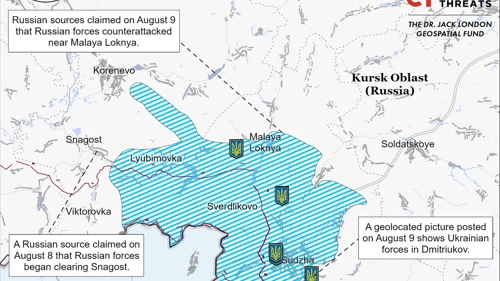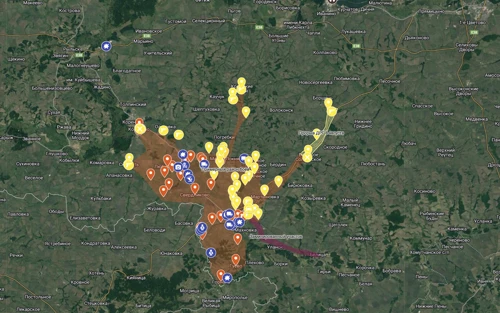Celebrating World Project Manager Day on the first Thursday of November

Project management is an art, a science and a crucial component of every successful business. It is a discipline that requires a combination of leadership, organisational and communication skills.
Every year, a special day is celebrated around the world to recognise the hard work and achievements of project managers. This day is known as International Project Manager's Day or simply Project Management Day. Let's dive deeper into the meaning of this day and the essence of project management.
Origins of International Project Manager's Day
How it all started
The establishment of International Project Manager's Day was aimed at creating a forum to appreciate the efforts and contributions of project managers who organise projects from scratch. It's an opportunity for teams and organisations to celebrate the careful planning, hard work and leadership that project managers put into their projects.
Significance of the Day
This day is more than just a holiday; it reflects the evolution of the project management industry and its growing impact on business and the economy. It provides an opportunity for professionals to share knowledge, network and discuss challenges and achievements in project management.
The Role of the Project Manager
Key Responsibilities
Project managers are the captains of a project ship, steering it through the waters of deadlines, budgets and scope changes. They are responsible for planning, executing and completing projects to meet strict deadlines and within budget. This includes acquiring resources and coordinating the efforts of team members and third-party contractors or consultants to deliver projects as planned.
Key skills for success
Success in project management is not only determined by delivering projects on time and on budget, but also by ensuring that the final product meets quality standards and meets stakeholder expectations. To achieve this, project managers must excel in areas such as communication, negotiation, problem solving and risk management.
The business impact of project managers
Bringing projects to completion
The true value of project managers lies in their ability to lead a project from conception to completion. Their strategic planning and execution skills ensure that projects are aligned with business goals, which is essential for an organisation's growth and competitiveness.
Case Studies of Successful Project Management
Business history is replete with examples of projects that either took off or failed. Those that have succeeded often have one thing in common - effective project management. The study of these cases reveals the role of the project manager in overcoming obstacles and guiding their teams to achieve exceptional results.
Challenges faced by project managers
Navigating complex projects
Project managers often find themselves in the eye of the storm, managing complex projects that require a delicate balance between competing demands. The challenge is to maintain clarity and direction despite all the complexities.
Balancing the interests of multiple stakeholders
Managing stakeholder expectations and interests is like walking a tightrope. Project managers must be adept at aligning diverse interests with project goals while providing a harmonious environment for collaboration.
Tools and techniques in project management
Traditional and agile methodologies
The debate between traditional (Waterfall) and agile (Agile) methodologies is central to the project management discourse. Each has its own set of principles and practices, and project managers often have to decide which methodology or combination of methodologies is best suited for a particular project.
Technological Advances and Tools
In the digital age, technology plays a key role in project management. From project management software such as Asana and Trello to advanced analytics and artificial intelligence, technology is enabling project managers to be more efficient and effective in their roles.
Leadership in Project Management
Leadership Development
A project manager is more than just a manager; they are a leader. Developing leadership skills is essential to motivate teams, instil confidence, and drive the project vision forward.
Developing leadership skills
A project manager is more than just a manager; they are a leader. Developing leadership skills is essential to motivating teams, instilling confidence, and moving the project vision forward.
Leading the team to success
A project manager's ability to lead is tested by their ability to guide the team through challenges to successful project completion. This involves not only managing tasks, but also inspiring and guiding team members.
Project management across industries
Differences and similarities
While the basic principles of project management are universal, project managers must adapt their strategies to the unique requirements of different industries. Whether it's construction, IT, healthcare or entertainment, the approach must be tailored to the specific needs of the industry, regulatory requirements and market conditions.
Tailoring approaches to industry needs
A thorough understanding of the industry structure is crucial. For example, in software development, Agile methodology may be more common, whereas in construction, a Waterfall approach may be better suited due to its sequential nature.
The future of project management
Trends and predictions
The project management landscape is constantly changing. New trends, such as remote team management, artificial intelligence and machine learning, are changing the way project managers work. Being able to stay ahead of these trends is crucial for the future-ready project manager.
Preparing for change
Adaptability is key in project management. As methodologies evolve and new technologies emerge, project managers must be prepared to embrace change and lead their teams through the transition period without problems.
How to become a project manager
Learning paths
Aspiring project managers often start with a university degree in business or a related field, although this is not a requirement. The point is to understand the principles of project management, which can also be gained through specialised courses and training programmes.
Certifications and professional development
Professional certifications such as PMP (Project Management Professional) or PRINCE2 are valuable for establishing credibility and expertise. Ongoing professional development is also crucial as it ensures that project managers stay up to date with best practices and industry developments.
The importance of communication in project management
Effective communication strategies
Project success is largely dependent on clear, concise and consistent communication. Project managers must establish and maintain communication channels that ensure all stakeholders are kept informed and aligned throughout the project lifecycle.
Tools to improve team communication
Using tools like Slack, Microsoft Teams, or even simple project dashboards can greatly improve communication and collaboration within project teams, ensuring that everyone is on the same page.
Balancing Time, Budget, and Quality
The Project Management Triangle
Time, budget, and quality - often referred to as the project management triangle - are critical factors in project success. Balancing these elements requires a thorough understanding of the project scope and constraints, as well as the ability to negotiate and make adjustments when necessary.
Case Study: Achieving the right balance
Real-life cases illustrate how skilled project managers overcome these constraints to achieve outstanding results, often turning potential challenges into opportunities for innovation and efficiency.
Celebrate success and learn from failure
Recognise team achievements
It's important to celebrate milestones and recognise team efforts. This not only boosts morale, but also reinforces a culture of success and collaboration.
Lessons learned from project failures
Failure is an inevitable part of the learning process. A good project manager will help the team learn valuable lessons from project failures to improve its performance in the future.
Project management communities and resources
Joining professional organisations
Joining professional organisations such as PMI (Project Management Institute) can provide invaluable resources, networking opportunities and a sense of community.
Continuing Education and Networking
The field of project management is dynamic. Continuing education, attending conferences and networking with peers are essential for personal growth and professional development.
By celebrating International Project Manager Day, we recognise the vital role these professionals play in the success of industries around the world. Their ability to adapt, lead and innovate ensures that project management remains an exciting and constantly evolving field. As project managers continue to shape the business landscape, their impact on an organisation's success is becoming increasingly evident and recognised.
Project Management Day FAQ
- What is International Project Manager Day?
International Project Manager's Day is an annual holiday dedicated to recognising and appreciating the hard work of project managers around the world. - When is International Project Manager's Day celebrated?
It is usually celebrated on the first Thursday of November each year. - How can organisations celebrate International Project Manager's Day? Organisations can celebrate by holding appreciation events, professional development workshops and recognising the achievements of their project management teams.
- What is the value of getting a project management certification? Certifications such as PMP or PRINCE2 validate a project manager's skills and knowledge and can enhance career opportunities and credibility in the field.
- How has technology impacted the project management field? br />Technology has introduced new tools and methodologies, making project management more efficient and allowing managers to handle complex projects more easily.


To leave a comment, please log in.